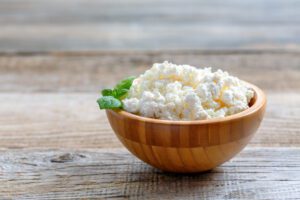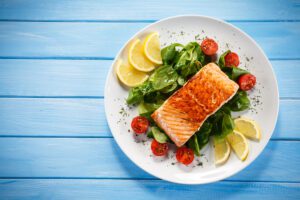A healthy diet fuels your brain and makes your body feel great. You’re on the right track if you have a balanced plate of proteins, vegetables, fruits, and carbohydrates. In this post, we will focus on proteins: Which are the best to keep in your diet and why? We will also discuss the worst proteins and why they’re bad for your health.
The Best Proteins
Chicken Breast
 Did you know 3 ounces of chicken breast equals 27 grams of protein? Not to mention, chicken meat is fully versatile and lean, meaning you can bake it, grill it, sauté it, or cook it in the crockpot. Not only is it high in protein for muscle growth and recovery, but it also contains niacin, selenium, phosphorus, and vitamins B6 and B1.
Did you know 3 ounces of chicken breast equals 27 grams of protein? Not to mention, chicken meat is fully versatile and lean, meaning you can bake it, grill it, sauté it, or cook it in the crockpot. Not only is it high in protein for muscle growth and recovery, but it also contains niacin, selenium, phosphorus, and vitamins B6 and B1.
Eggs
 One egg equals 6 grams of protein, making it a great breakfast food to get the day started. Eggs have a complete amino acid profile and contain vitamins B and D, selenium, and iron. A single egg yolk contains up to 150 mg of choline, a powerful brain food. To reap all the benefits of eggs, keep the yolks – that’s where most of the nutrients are, even though most of the protein is found in the whites.
One egg equals 6 grams of protein, making it a great breakfast food to get the day started. Eggs have a complete amino acid profile and contain vitamins B and D, selenium, and iron. A single egg yolk contains up to 150 mg of choline, a powerful brain food. To reap all the benefits of eggs, keep the yolks – that’s where most of the nutrients are, even though most of the protein is found in the whites.
Cottage Cheese
 Cottage cheese is low in fat and calories but relatively high in protein per serving. Look at the packaging label because there are several variations, including fat-free, 1%, 2%, whole milk, large curd, and small curd.
Cottage cheese is low in fat and calories but relatively high in protein per serving. Look at the packaging label because there are several variations, including fat-free, 1%, 2%, whole milk, large curd, and small curd.
Fish
 Fish is one of the healthiest sources of protein because it’s packed with nutrients like omega-3 fatty acids, vitamin D, calcium, iron, zinc, magnesium, and potassium. Not to mention, 3 ounces of salmon has upward of 15 grams of protein.
Fish is one of the healthiest sources of protein because it’s packed with nutrients like omega-3 fatty acids, vitamin D, calcium, iron, zinc, magnesium, and potassium. Not to mention, 3 ounces of salmon has upward of 15 grams of protein.
The Worst Protein
Hot Dogs
 Baseball games, outdoor cookouts, carnivals…hot dogs are an American tradition. But they’re also loaded with saturated fat and unnecessary calories. We love hot dogs as much as the next person, but it’s best to consume them in moderation.
Baseball games, outdoor cookouts, carnivals…hot dogs are an American tradition. But they’re also loaded with saturated fat and unnecessary calories. We love hot dogs as much as the next person, but it’s best to consume them in moderation.
Protein Bars
 Protein bars may be a quick on-the-go snack, but most, not all, are filled with sugar and unnecessary additives. Before you add these to your diet, check the labels and ensure they’re not primarily made up of processed goods and artificial sweeteners. A healthy “approved” bar would have a sugar replacement like dates, not a bunch of ingredients you can’t pronounce.
Protein bars may be a quick on-the-go snack, but most, not all, are filled with sugar and unnecessary additives. Before you add these to your diet, check the labels and ensure they’re not primarily made up of processed goods and artificial sweeteners. A healthy “approved” bar would have a sugar replacement like dates, not a bunch of ingredients you can’t pronounce.
Plant-Based Replacements
 Faux sausages, burgers, and other meat replacements have little nutritional value. They may be “plant-based” but are often loaded with sodium. Before consuming these options, review the label to check the nutrition content.
Faux sausages, burgers, and other meat replacements have little nutritional value. They may be “plant-based” but are often loaded with sodium. Before consuming these options, review the label to check the nutrition content.






